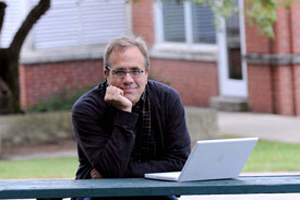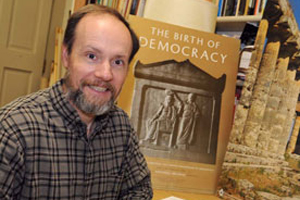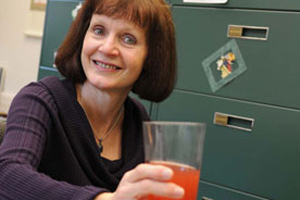What you should know: Computer Science

 Computer science is not the study of computers.
Computer science is not the study of computers.
Computers are to computer science as telescopes are to astronomy. Rather,
the discipline of computer science researches algorithms and information
representation.
 Computer scientists use abstraction to manage complexity.
Computer scientists use abstraction to manage complexity.
The technical complexity of today’s hardware and software systems is mind-boggling, but computer scientists know a trick—use abstraction. While the adjective “abstract” may strike fear into the hearts of students, for scientists it is the key to ignoring unimportant details to focus on what is important for the problem at hand. This practice is widespread in our discipline—from software engineering to operating system. You can try this abstraction mind trick at home—it is a widely applicable problem-solving technique.
 There is no Nobel Prize in computer science.
There is no Nobel Prize in computer science.
You knew that. But our equivalent, given annually for outstanding research in the field, is the Turing Award. In 1936 Alan Turing published On Computable Numbers where he formulated the Halting Problem—a problem which no algorithm, ever, could be designed to solve. Because this was before the advent of electronic digital computers, he had to produce an abstract model of a computation machine—now called the Turing Machine—to determine what computers could and could not do. During World War II, Turing was a key member of the group that successfully broke the Nazi’s Enigma Machine code. After the war, Turing proposed a test for artificial intelligence. Every time you figure out what words are hidden in a messy graphic before you sign up for an account online, you are passing a version of the Turing Test. Turing was homosexual, which was illegal at that time. He was prosecuted, subjected to chemical treatments, and lost his security clearance. He killed himself in 1954 at the age of 41. As I was writing this article, at long last, British Prime Minister Gordon Brown offered an official apology for the government’s actions. Turing Machine, Enigma Machine cracked, Turing Test, Turing Prize. Quite a legacy.
 Women are not choosing computing as a career.
Women are not choosing computing as a career.
The percentage of women in computer science advanced placement high school classes, computer science undergraduate and graduate programs, and Information Technology (IT) jobs is around 20 percent and falling. This situation is unfortunate. Computer science is a demanding field that is missing out on contributions by some of the brightest minds in the country.
 It is a great time to be a computer scientist.
It is a great time to be a computer scientist.
With the spread of technology, it is satisfying to understand how all this stuff works. But a deeper satisfaction comes from the effect developments in computing have on people’s lives. When I see news coverage of a soldier in Iraq talking with his young family in the United States via video teleconferencing, I get a little twinge of pride. When robots investigate the surface of Mars or perform surgery, a person’s sight is restored using an embedded microprocessor, or my wife is contacted by an old friend on Facebook, I get a warm fuzzy. Every day, computer scientists get to experience a sense of satisfaction for the work we do. There is no end in sight.



